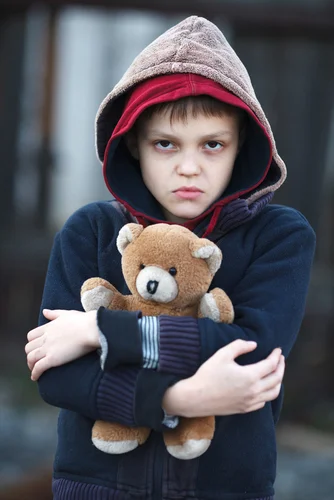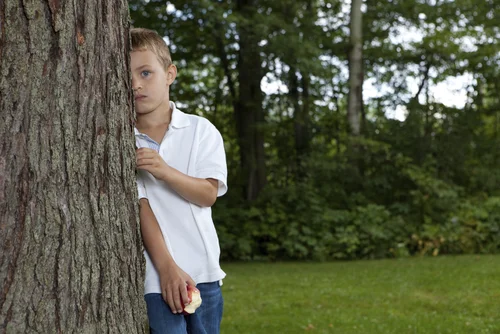Selfishness in children: it may not be as bad as you think!
/By Joseph Sacks, LCSW
Many times parents voice a complaint about selfishness in children.
They feel their children are endlessly needy and demanding, even greedy, and don't seem to think of or have consideration for others. This generates fear in the parents that their children will lead a life of selfishness and poor character traits, and certainly won’t be liked. The good news is that this fear is usually totally unfounded.
The truth which we must embrace is that selfishness in children is good, normal and healthy to a certain extent!
They are supposed to be selfish because they're engaged in the fundamental business of creating they're very selves. You need not worry, they will develop selflessness in good time, with maturity. Would you complain of an infant that she is selfish, she only wants me to feed her or pick her up and change her, and she never gives me anything in return? That is surely ridiculous. An infant is supposed to be a receiver. She needs to take and take and take for many years, and it's the parents’ job to give and give. What we must understand is that childhood is just an extension of babyhood. A child has much more in common with a baby then he has with an adult. He's fully a child until he's 18 and he needs to receive and receive, first.
See my important post: How not to spoil your child, here.
How do I get my child to be less selfish?
Paradoxically, receiving acts of kindness from his parents as a child is what fills him up to overflowing and prepares him to be a generous giver as an adult. The more we give to our children when they're young, the more they will be inspired to be givers when they grow up, but if they do not receive what they need when they are young, their ability to give as an adult will be stunted. They will be emotionally damaged by not having had their needs fulfilled as children, and their entire adult life will be plagued by preoccupation with their unfulfilled archaic needs, and they will indeed be selfish at a time when it's appropriate to be generous. Therefore we see that ironically, fear that our children are selfish, which results in us giving less to them as children, actually makes them more selfish as adults, but giving generously to them as children turns them into generous givers.
What a child becomes a teenager he gradually begins to learn the joy of giving, so he'll be ready to be a full-fledged giver when he's 18, but many parents make the mistake of expecting a little too much selflessness at a particular age then the child’s maturity level warrants. We can only expect a 10-year-old to be as selfless as a 10-year-old is supposed to be, and expecting too much for him creates frustration, conflicts, disapproval and criticism. Therefore we need to be patient and wait for the child to develop his generous spirit at his own pace and in good time.
What is a successful professional business life? Performing acts of kindness. Providing a product or service to boss or customers is an act of giving. It doesn't matter that they're paying you. People that have a spirit of generous giving to their clients or customers are those who are successful professionally. How do we encourage this? By being endlessly generous to our children when they are young. This sets a powerful example which they learn to follow as adults, becoming generous with their customers and also performing acts of charity and kindness to their fellow man.
Remember Alfie Kohn, renowned parenting expert, wisely said that when children's needs are fulfilled it provides them with a solid foundation and frees them up to be able to turn their attention to the needs of others. But if the child needs are not fulfilled they become preoccupied with those needs, and have no energy to think of the needs of others.
See my interesting post: 10 Parenting Myths, here.
Why do I feel reluctance to be so generous to my child?
However there's an additional, subtle dynamic that often comes into play here. Many times parents unfortunately did not have their own needs met by their parents as children. This curiously can create a block which prevents them from fulfilling their own children's needs generously. How does this work? No parent is perfect and the parents’ own parents may have made mistakes in not fulfilling his needs sufficiently. This creates an unresolved trauma in the subconscious mind of the parent and when his own children display neediness, satisfying those needs opens up his own childhood wounds and he therefore resist doing it. It's a little bit tricky and complicated, try and stay with me. Alice Miller, famed psychotherapist, explains that when a child's needs are not met he tends to idealize the parent and justify their mistake to maintain the integrity of his child support structure. A child must believe that his parents are all good. To admit that they actually make mistakes is too terrifying. Therefore deep down the child mistakenly feels that he is bad, he deserved to have his needs unfulfilled and his parents were right. This whole fantasy was necessary for the emotional survival of the child and even though it is unnecessary as an adult he is unconsciously terrified to abandon it. Being generous to his own children threatens that fantasy because it breaks the rule that his parents were right, because if I'm right to give selflessly to my children, my parents must've been wrong. This is often too painful for parents to admit and results in great resistance to being generous to the children. What is the solution to this problem? The parent needs good psychotherapy for him or herself, where he will utilize the natural tool for resolving emotional trauma, grieving and mourning. He needs, with the help of a psychotherapist, to grieve and mourn the unfortunate errors of his parents and truly process, that is gain conscious awareness of his loss. He needs to express his angry feelings over it. Thereby the trauma will be processed and fade into the past and it will no longer block him from being generous towards his children. This is a deep and profound process which takes months but it will not only bring great benefits to our children it will tremendously heal ourselves. Furthermore, it is highly recommended for the parent to ask his own parents if possible to verbally recognize that although they loved him and did the best they could, they made mistakes. This will bring conscious awareness of the whole process and therefore great healing and will free the parent up to be generous to his own children and break the cycle of unfulfilled needs.
See my blog post, “How does psychotherapy work?” for more information on the process in detail. Also, see my page on parenting.
Feel free to peruse my interesting blog, the specialties on my website, or download on of my informative free reports. If you are experiencing challenges dealing with selfishness in children, and would like guidance or treatment from a child therapist in lower Manhattan, you may call me at 646-681-1707 for a free 15-minute consultation. I look forward to speaking with you!






























